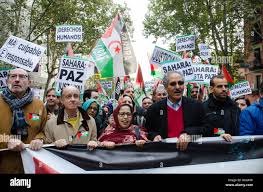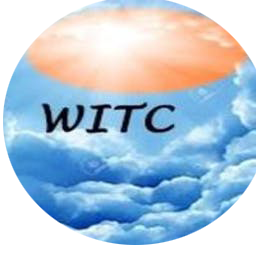Maybe it’s time to figure out where precisely North African countries belong, either to the African Union (AU) or to the Middle East and North Africa (MENA), before one can apportion blame.

The bone of Contention So Far is a tripartite affair involving Morocco, Algeria, Spain, and Sahara in the middle, whose struggle for liberation brought about the guerrilla Polisario Front.
Interestingly, the Putin-Ukraine war brought many issues that only a few knew about: the scarcity of almost everything, especially gas and petroleum products.
The Polisario Front and Its Autonomy: The Main Root Cause of the Crisis in the Region
The Polisario Front began in May 1973 as an insurgency group (though with a base in Mauritania but heavily backed by Algeria), fighting against Spanish control, and lasted until 1975, when the Spanish decided to leave.
The Sahrawi nomadic tribes are the main constituents of the Polisario Front.
Algeria is among the few Arab League countries assisting the Polisario Front. And the problem between Morocco and Algeria would deepen as the Polisario Front struggles became a movement for the independence in Western Sahara, a former Spanish territory that Morocco annexed at the beginning of 1976.

The Disagreement Between Morocco and Algeria
The crisis between the neighboring countries (Morocco and Algeria) concerns the Polisario Front’s autonomy. While Morocco wants autonomy, Algeria, on the other appears to stick to Sahara’s independence which does not sit well with Morocco.
Unfortunately, that political issue has dragged on for too long and seems to be affecting even regional bilateral and multilateral trade.
The gas crisis between Spain and Algeria is a case in point where Algeria suspects that Spain is reselling gas from Algeria to Morocco.
The Problem Between Spain and Algeria
It was all political in the background, as Spain was backing the Moroccan proposal of autonomy for the Saharawi region against Algeria’s complete independence for the area.
Algeria is the second gas supplier to Spain, coming just next after the United States.
Part of the problem, as previously stated, arose as Algeria got wind of the information that Spain was negotiating with supplying gas to Morocco.
The bad blood situation on the ground made Algeria recall its diplomat from Madrid with haste while the gas supply was stopped or blocked momentarily.
Given the dispute between the two countries and the economic consequences, Spain didn’t hesitate to invite the EU into the matter.
And the EU took the case by the horn as it threatened Algeria’s action, alleging that if it continued blocking gas supply to Spain, the rest of the EU-member countries would also stop importing gas from Algeria.
Now, that is very serious, especially if the EU could intervene in a bilateral agreement between two countries belonging to different supranational organizations and throw its weight unjustly on one side.
Algeria is the second gas supplier to Spain, coming just next after the United States.
Part of the problem, as previously stated, arose as Algeria got wind of the information that Spain was negotiating with supplying gas to Morocco.
The bad blood situation on the ground made Algeria recall its diplomat from Madrid with haste while the gas supply was stopped or blocked momentarily.
Given the dispute between the two countries and the economic consequences, Spain didn’t hesitate to invite the EU into the matter.
And the EU took the case by the horn as it threatened Algeria’s action, alleging that if it continued blocking gas supply to Spain, the rest of the EU-member countries would also stop importing gas from Algeria.
Now, that is very serious, especially if the EU could intervene in a bilateral agreement between two countries belonging to different supranational organizations and throw its weight unjustly on one side.

Therefore, Algeria was seen as an orphan left alone in this battle without similar backing from the AU or the Arabic League nations.
While the EU is backing Spain for no other reason but economic interest, as long as it would benefit the whole European Union.
However, the vexed question then becomes what AU or NATA did about the issue?
When Spain ran to its supranational organization, the EU, one was eager to know what Algeria did. Was it not also supposed to have run to the AU or NATA for a consultation to seek redress?
Though still skeptical as to what would have been the outcome being that both EU and AU are supranational organizations, do they match?
In other words, are they at par with each other or considered as such when executing authority in defending their member countries? Why not, if not?
And if not, should it be because the EU embodies an institution of former colonial and imperial masters who still exercise some influence over their former colonies even though many of these countries now see themselves as “independent”? But how independent are they?

Seriously speaking, something must be done about things like these. What gives the EU the power to threaten an African country that entered into a private and bilateral trade agreement between two countries?
My advice for these African countries is that you are independent and stand to bear the brunt comes what may, but for God’s sake, not both.
For it’s dehumanizing, downright disheartening, and shameful as a people and continent for you to just give in like that.
Thanks for reading!
I highly value and appreciate all of you, my readers. You’re the purpose I strive to do better every day. Please sign up to receive an email every time I publish, and I kindly invite you to subscribe. By so doing, you will support our efforts in getting the best for you and enabling you to gain access to all the juicy stories.
